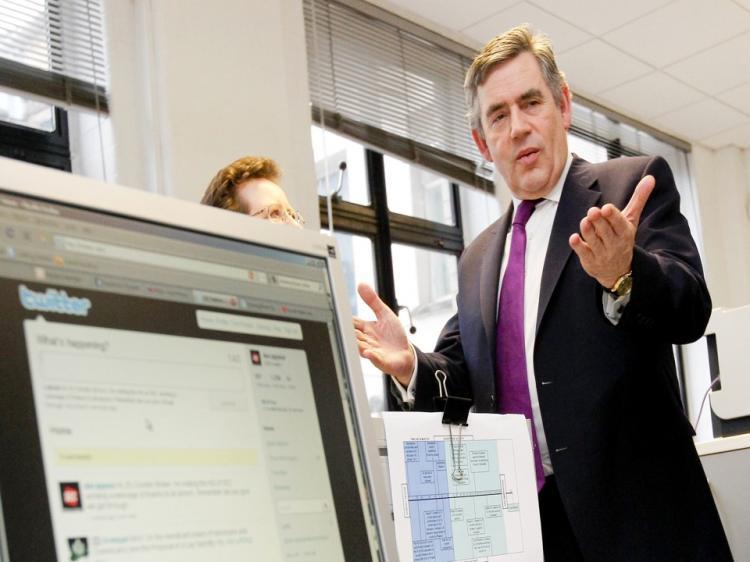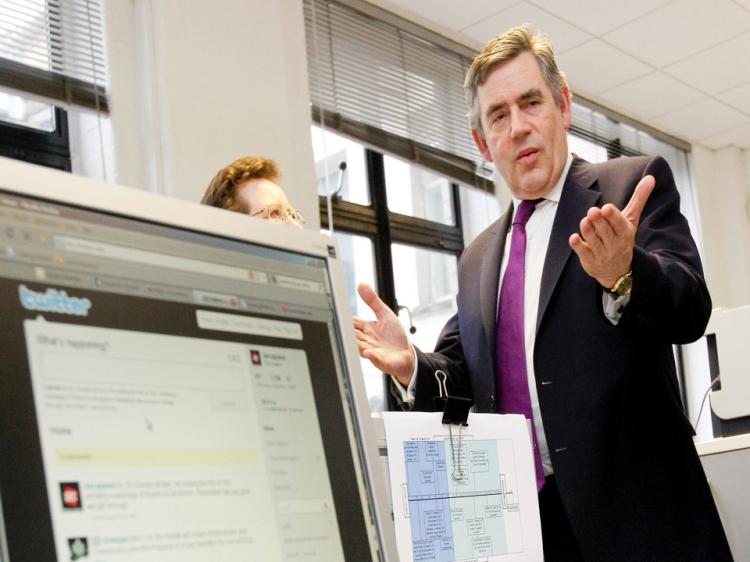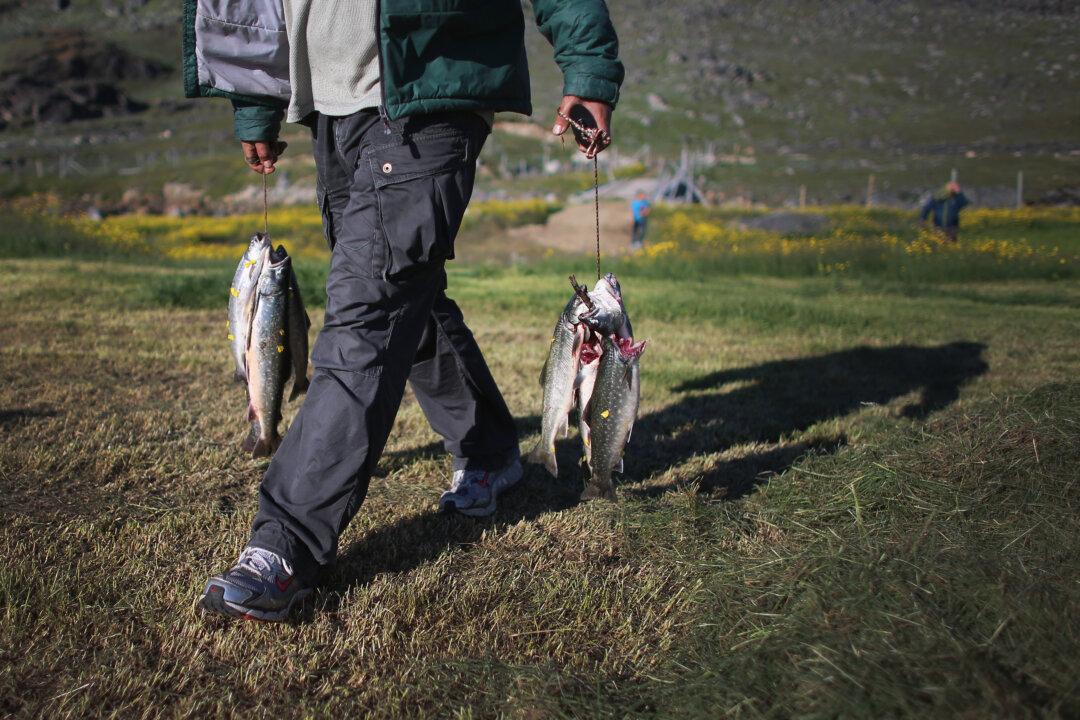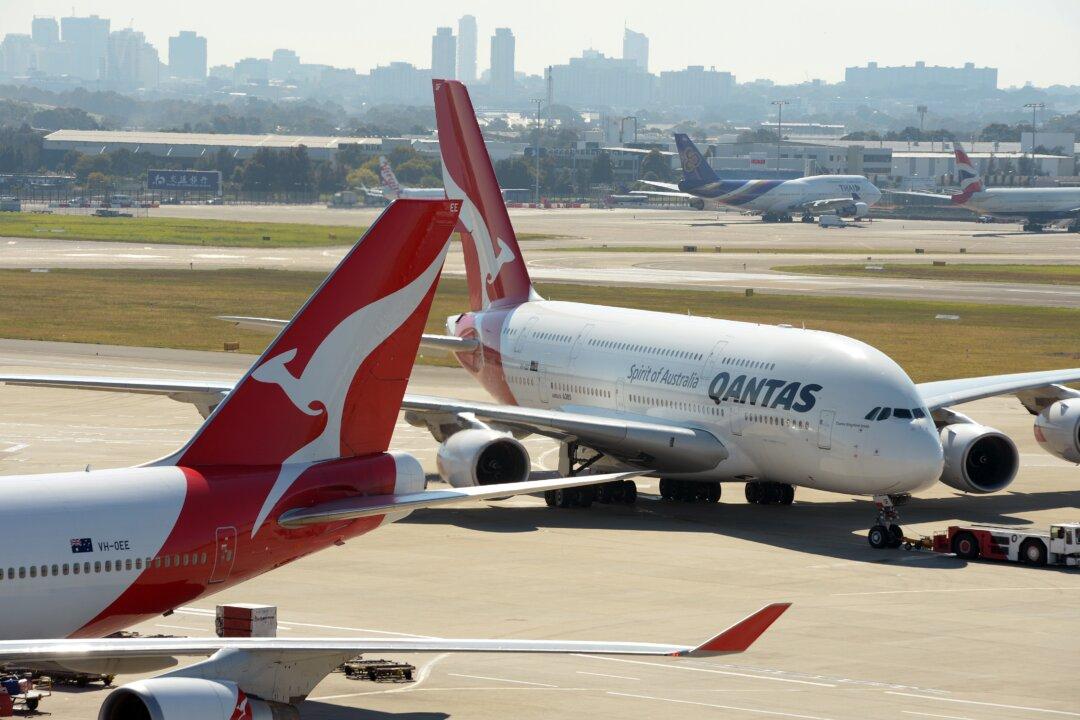U.K. Election: Cyber Campaigning
The apparent refusal of Prime Minster Gordon Brown to discuss his biscuit preferences was one of the biggest items of news on a live Web chat.
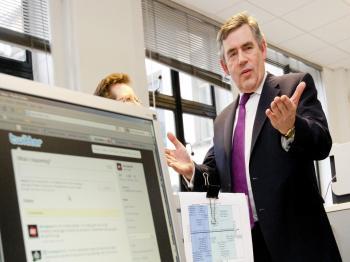
U.K. Prime Minister Gordon Browns stands near a computer logged onto a social networking site. With the first election since the advent of social media, politicians are keen to update strategies to master its vote-winning potential. Dan Kitwood/Getty Images
|Updated:
